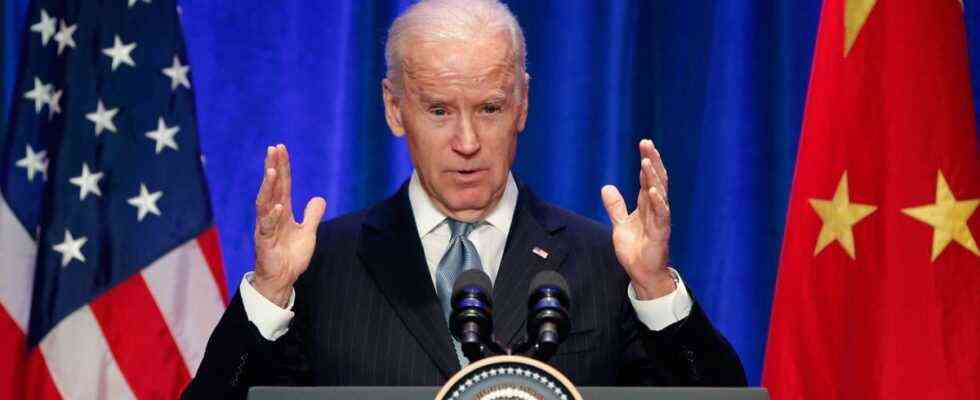The relationship started difficult. The first time Jake Sullivan sat across from Yang Jiechi, the US national security advisor had to hear a sharp scolding from the top Chinese diplomat. On that March day in Anchorage, Foreign Minister Antony Blinken and Jake Sullivan read the riot act for 18 minutes in front of the cameras. The US had to stop exporting its democracy, Yang complained.
The undiplomatic maneuver made it clear: The signs point to a storm between China and the USA. A telephone conversation between the presidents at the beginning of September was correspondingly tense. When Joe Biden invited Xi Jinping to a meeting, he did not even answer. In return, Beijing immediately charged the arms race when the US announced that it would equip Australia with nuclear submarines.
Only on Monday did the Americans step up their trade policy. Biden upholds Trump-era punitive tariffs and accuses China of importing fewer promises. He appointed Katherine Tai, a tough negotiator with roots in mainland China and Hong Kong, as the trade agent.
China, on the other hand, has systematically penetrated Taiwan’s airspace with more than 150 aircraft in the past few days, which is fueling fears of an invasion on the island, which sees itself as an independent state. Washington demanded that the “provocations” be stopped and Biden assured Taiwan of American assistance, but so far without any visible success. Taiwan is preparing for a possible war and has asked Australia for assistance.
Is there a presidential meeting in Rome?
In this extremely tense situation, Sullivan and Yang wanted to find a friendlier tone with each other in tranquil and neutral Switzerland. For their second meeting on Wednesday, they chose a hotel at Zurich Airport. Biden had sent Sullivan to “responsibly regulate competition between the United States and the People’s Republic of China,” as the White House put it.
The cautious formulation seems like the first move in a de-escalation strategy. This fueled the rumor that Sullivan and Yang should prepare an early meeting of the presidents. At least in the dry communiqué of the Americans after the meeting, however, there was no mention of it. Sullivan presented some areas for cooperation – certainly climate change – but also addressed issues that the US was “concerned” with: human rights, Xinjiang, Hong Kong, the South China Sea and Taiwan.
On to Brussels and Paris
At best, this suggests small steps of relaxation, which also happen every now and then. In September, for example, Huawei’s chief financial officer Meng Wanzhou was able to travel back to China. The US accused her of violating sanctions against Iran and arrested her in Canada. Upon Meng’s return, two Canadians were released in China.
Sullivan traveled from Zurich to Brussels and Paris, where dealing with China is high on the list. Even if the tone should improve, Sullivan knows: it will no longer be a simple relationship.

